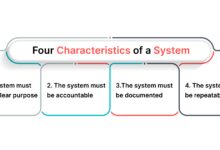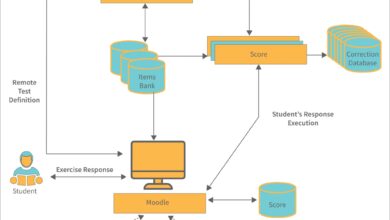Top Cloud-Based CRM Platforms: 7 Ultimate Power Tools for 2024
In today’s hyper-connected business world, the right CRM can be your ultimate game-changer. Discover the top cloud-based CRM platforms that are redefining customer relationships, boosting sales, and streamlining operations across industries.
Top Cloud-Based CRM Platforms: Why They Dominate Modern Business

Cloud-based CRM platforms have revolutionized how businesses manage customer relationships. Unlike traditional on-premise systems, these platforms offer unmatched flexibility, scalability, and real-time data access from anywhere in the world. With the global CRM market projected to exceed $128 billion by 2028, the shift to cloud solutions is not just a trend—it’s a strategic necessity.
What Makes a CRM ‘Cloud-Based’?
A cloud-based CRM is hosted on remote servers and accessed via the internet, eliminating the need for local installations and hardware. This model allows businesses to subscribe to services on a pay-as-you-go basis, reducing upfront costs and IT overhead.
- Hosted on secure, remote data centers (e.g., AWS, Google Cloud)
- Accessible via web browsers or mobile apps
- Automatic updates and security patches
This architecture ensures that companies, from startups to enterprises, can scale their CRM capabilities seamlessly as they grow.
Key Advantages Over On-Premise Systems
One of the biggest reasons businesses are migrating to cloud CRM is the operational agility it provides. According to a 2023 Gartner report, 85% of organizations now prefer cloud-first strategies for customer engagement tools.
- Lower Total Cost of Ownership (TCO): No need for expensive servers or dedicated IT staff.
- Faster Deployment: Most cloud CRMs can be up and running in days, not months.
- Real-Time Collaboration: Teams across departments and geographies can access and update customer data instantly.
“The cloud has democratized access to enterprise-grade CRM tools. Now even small businesses can compete with giants.” — Forrester Research, 2023
Top Cloud-Based CRM Platforms: The 7 Market Leaders
The CRM landscape is crowded, but a few platforms consistently rise to the top due to their robust features, user experience, and ecosystem integrations. Let’s dive into the seven most powerful cloud-based CRM platforms shaping 2024.
1. Salesforce Sales Cloud
Salesforce remains the undisputed leader in the CRM space, holding over 19% market share as of 2024. Its Sales Cloud is the gold standard for sales automation, lead management, and forecasting.
- AI-powered insights via Einstein Analytics
- Extensive AppExchange with 3,000+ integrations
- Highly customizable workflows and dashboards
Salesforce excels in scalability, making it ideal for large enterprises. However, its complexity can be overwhelming for small teams without proper training. Learn more at Salesforce Sales Cloud Overview.
2. HubSpot CRM
HubSpot CRM stands out for its user-friendly interface and free tier, making it a favorite among startups and SMBs. It seamlessly integrates marketing, sales, and service tools in one platform.
- Free forever plan with core CRM features
- Drag-and-drop email templates and automation
- Powerful reporting and customer journey tracking
Its strength lies in inbound marketing integration. HubSpot’s ecosystem allows businesses to attract, engage, and delight customers holistically. Explore it at HubSpot CRM.
Top Cloud-Based CRM Platforms – Top Cloud-Based CRM Platforms menjadi aspek penting yang dibahas di sini.
3. Microsoft Dynamics 365
For organizations already invested in the Microsoft ecosystem, Dynamics 365 offers deep integration with Office 365, Teams, and Azure. It’s a top choice for enterprises seeking a unified business application suite.
- Native integration with Outlook, Excel, and Power BI
- AI-driven sales insights and customer service automation
- Flexible deployment options (cloud, hybrid)
Dynamics 365 is particularly strong in industries like manufacturing, retail, and professional services. Visit Microsoft Dynamics 365 for details.
4. Zoho CRM
Zoho CRM is a cost-effective powerhouse, especially for mid-sized businesses. With over 15 million users worldwide, it offers a rich feature set at a fraction of the cost of competitors.
- Zia AI for predictive sales forecasting
- Multi-channel communication (email, phone, social)
- Customizable sales pipelines and automation rules
Zoho’s ecosystem includes over 50 business apps, enabling end-to-end digital transformation. Check it out at Zoho CRM.
5. Oracle CX Sales
Oracle’s cloud CRM is designed for large enterprises with complex sales cycles and global operations. It leverages AI and machine learning to deliver deep customer insights and predictive analytics.
- Advanced territory and quota management
- Real-time sales performance dashboards
- Integration with Oracle ERP and HCM suites
Oracle CX Sales is ideal for B2B companies in finance, healthcare, and telecommunications. Learn more at Oracle CX Sales.
6. SAP Sales Cloud
SAP Sales Cloud is part of the broader SAP Customer Experience suite, catering to large enterprises with existing SAP infrastructure. It emphasizes data-driven decision-making and omnichannel engagement.
- Embedded analytics and AI recommendations
- Mobile-first design for field sales teams
- Tight integration with SAP S/4HANA
It’s particularly effective in industries with complex product configurations, such as automotive and industrial equipment. Visit SAP Sales Cloud.
7. Pipedrive
Pipedrive is built for sales-focused teams that prioritize pipeline visibility and deal tracking. Its visual interface makes it easy to manage leads and forecast revenue.
- Drag-and-drop sales pipeline management
- Activity reminders and automation
- Robust API for custom integrations
Popular among small to mid-sized sales teams, Pipedrive is known for its simplicity and effectiveness. Explore it at Pipedrive.
Top Cloud-Based CRM Platforms – Top Cloud-Based CRM Platforms menjadi aspek penting yang dibahas di sini.
Top Cloud-Based CRM Platforms: Key Features to Evaluate
Choosing the right CRM isn’t just about brand reputation—it’s about matching features to your business needs. Here are the critical capabilities to assess when evaluating top cloud-based CRM platforms.
Sales Automation and Pipeline Management
Effective sales automation reduces manual tasks and increases conversion rates. Look for platforms that offer:
- Lead scoring and routing
- Email tracking and scheduling
- Deal stage progression alerts
Salesforce and Pipedrive lead in this area, offering intuitive pipeline views and automation workflows that adapt to your sales process.
Customer Service and Support Tools
A CRM should not only manage sales but also enhance customer service. Key features include:
- Ticketing systems and knowledge bases
- Live chat and AI chatbots
- Service level agreement (SLA) tracking
HubSpot and Zoho CRM offer robust service hubs that integrate seamlessly with sales data, enabling a 360-degree customer view.
Marketing Integration and Campaign Management
The best CRMs break down silos between marketing and sales. Evaluate platforms that support:
- Email campaign builders
- Landing page creation
- Lead nurturing workflows
HubSpot excels here, offering a full-stack marketing CRM that tracks customer behavior from first click to close.
Top Cloud-Based CRM Platforms: Scalability and Customization
As your business grows, your CRM must grow with it. Scalability and customization are critical factors that determine long-term success.
Adapting to Business Growth
A scalable CRM should handle increasing data volumes, user counts, and transaction frequency without performance degradation. Salesforce and Microsoft Dynamics 365 are built for enterprise-scale operations, supporting thousands of users across multiple regions.
- Multi-currency and multi-language support
- Global data center availability
- Role-based access control (RBAC)
These platforms also offer vertical-specific editions (e.g., Salesforce for Financial Services) to meet industry compliance needs.
Top Cloud-Based CRM Platforms – Top Cloud-Based CRM Platforms menjadi aspek penting yang dibahas di sini.
Customization Through APIs and App Marketplaces
No two businesses have identical processes. The ability to customize workflows, fields, and reports is essential.
- Salesforce AppExchange: 3,000+ apps
- Zoho Marketplace: 1,500+ integrations
- HubSpot Marketplace: 1,000+ tools
These marketplaces allow businesses to extend functionality without custom coding. For developers, robust APIs (REST, SOAP) enable deep integration with ERP, e-commerce, and legacy systems.
“Customization is the key to CRM adoption. If it doesn’t fit your workflow, users won’t use it.” — TechCrunch, 2023
Top Cloud-Based CRM Platforms: Security and Compliance
In an era of data breaches and stringent regulations, security is non-negotiable. Top cloud-based CRM platforms invest heavily in protecting customer data.
Data Encryption and Access Controls
Reputable CRMs use end-to-end encryption (AES-256) for data at rest and in transit. They also implement:
- Multi-factor authentication (MFA)
- Single sign-on (SSO) with SAML
- Activity logs and audit trails
Salesforce, for example, complies with ISO 27001, SOC 1/2/3, and GDPR standards, ensuring data protection across regions.
Compliance with Industry Regulations
Depending on your industry, you may need CRM compliance with:
- GDPR (General Data Protection Regulation) – EU
- CCPA (California Consumer Privacy Act) – USA
- HIPAA (Health Insurance Portability and Accountability Act) – Healthcare
Oracle and SAP offer specialized compliance modules for regulated industries, reducing legal and financial risks.
Top Cloud-Based CRM Platforms: Pricing Models Compared
Understanding pricing is crucial to avoid unexpected costs. Most cloud CRMs use tiered subscription models based on features and user count.
Free vs. Paid Tiers
Some platforms, like HubSpot and Zoho, offer free plans with basic CRM functionality. These are ideal for startups testing the waters.
- HubSpot Free: Unlimited contacts, email tracking, live chat
- Zoho Free: Up to 3 users, basic sales automation
Paid tiers unlock advanced features like AI, reporting, and integrations. Always evaluate the cost per user and hidden fees (e.g., API calls, storage).
Top Cloud-Based CRM Platforms – Top Cloud-Based CRM Platforms menjadi aspek penting yang dibahas di sini.
Enterprise Licensing and Negotiated Contracts
For large organizations, enterprise licensing offers volume discounts and custom SLAs.
- Salesforce: Custom quotes based on modules and users
- Microsoft Dynamics 365: Bundled with Office 365 licenses
- Oracle: Annual subscription with support included
Negotiating contracts can save up to 30% annually, especially when committing to multi-year agreements.
Top Cloud-Based CRM Platforms: Implementation and User Adoption
Even the best CRM will fail if not implemented properly. User adoption is the biggest challenge, with studies showing that 43% of CRM projects fail due to poor training and change management.
Onboarding and Training Resources
Leading platforms provide extensive onboarding support:
- Salesforce Trailhead: Free interactive learning platform
- HubSpot Academy: Certifications in CRM and marketing
- Microsoft Learn: Role-based training for Dynamics 365
These resources help users master the platform quickly, reducing the learning curve.
Change Management Strategies
To drive adoption, businesses should:
- Involve end-users in the selection process
- Start with a pilot group before full rollout
- Assign internal CRM champions
Regular feedback loops and continuous improvement ensure long-term success.
What is a cloud-based CRM?
A cloud-based CRM is a customer relationship management system hosted on remote servers and accessed via the internet. It allows businesses to manage customer interactions, sales pipelines, and marketing campaigns in real time without on-site hardware.
Which CRM is best for small businesses?
Top Cloud-Based CRM Platforms – Top Cloud-Based CRM Platforms menjadi aspek penting yang dibahas di sini.
HubSpot CRM and Zoho CRM are top choices for small businesses due to their free tiers, ease of use, and scalable features. Pipedrive is also popular for sales-focused teams.
How much do cloud CRMs cost?
Prices vary widely. Free plans are available (e.g., HubSpot, Zoho), while enterprise solutions like Salesforce can cost $300+ per user per month. Most platforms offer tiered pricing based on features and user count.
Can cloud CRMs integrate with other software?
Yes, top cloud-based CRM platforms offer extensive integration capabilities via APIs and app marketplaces. Common integrations include email, calendar, ERP, e-commerce, and marketing automation tools.
Is my data safe in a cloud CRM?
Reputable cloud CRM providers use advanced security measures like encryption, MFA, and compliance certifications (GDPR, HIPAA) to protect your data. Always review the provider’s security documentation before committing.
Choosing the right cloud-based CRM is a strategic decision that can transform your customer relationships and drive growth. From Salesforce’s enterprise power to HubSpot’s inbound marketing magic, the top cloud-based CRM platforms offer tools to fit every business size and industry. By evaluating features, scalability, security, and pricing, you can select a solution that not only meets your current needs but also supports future expansion. The future of customer engagement is in the cloud—make sure you’re on the right platform.
Top Cloud-Based CRM Platforms – Top Cloud-Based CRM Platforms menjadi aspek penting yang dibahas di sini.
Recommended for you 👇
Further Reading:









